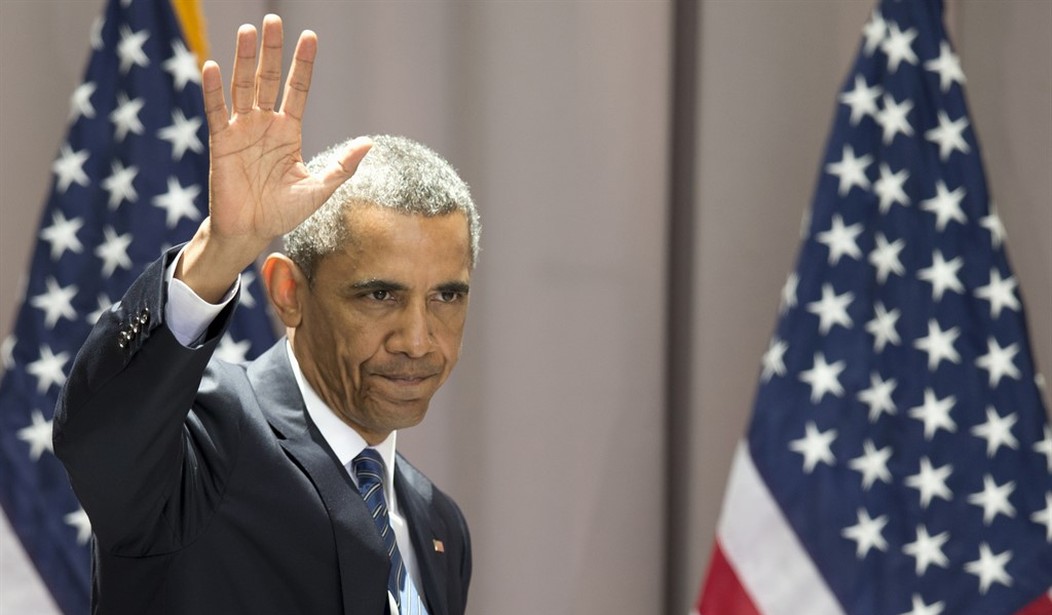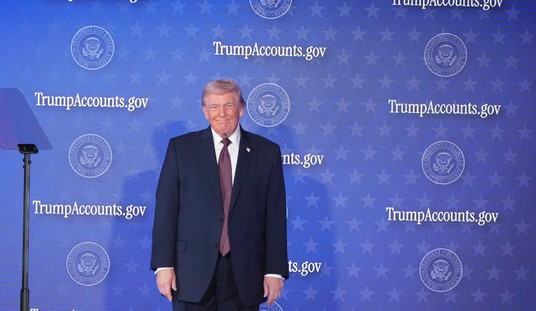This was the whole strategy behind President Obama's decision to declare the Iran accord an "executive agreement" rather than a treaty. Treaties require two-thirds support from the Senate for adoption; executive agreements, Obama has argued, don't require any vote at all. Ultimately, even Congressional Democrats were unwilling to accede to a power grab quite that brazen, especially on a deal with major geopolitical implications and that is intended to bind future presidents and Congresses. Thus, a bipartisan bill was passed that asserted the right of Congress to vote to approve or disapprove the final agreement. But with Obama's veto pen waiting in the Oval Office, derailing the deal would take a veto override -- two-thirds majorities in both houses. So the whip count math was flipped on its head: Rather than the White House needing to find 67 Senators to bless a treaty, they only need one-third of at least one house of Congress to sustain his veto of a disapproval resolution. That's a much, much lower bar, and one that Democrats are ready to clear:
Opponents of the Iran nuclear deal in Congress admit they can no longer kill the accord. Their focus now is making sure there will be a vote on the agreement at all, and salvaging some political benefit from their well-funded bid to stop it. Lawmakers, Congressional staffers and lobbyists opposed to the deal reached in Vienna last month tell us they are now fighting to get more than 60 votes in the Senate for a resolution of disapproval to avoid a filibuster by Democrats supporting President Barack Obama. That is a far cry from the 67 votes in the Senate needed, along with two thirds of the House, to overturn an expected presidential veto of that resolution. Yes, overturning an Obama veto was always a longshot. House Speaker John Boehner in April was privately warning Republicans that his party didn't have the votes to stop the deal. Now Republican leaders are saying this out in the open.
The emerging concern is whether opponents of the deal will be able to overcome a Democratic filibuster, as Harry Reid says he intends to try to obstruct a vote on the accord, with the White House's strong encouragement. Obama has never wanted Congress to weigh in on his reckless project, and he knows that vetoing Congress' rejection of the deal would be politically damaging. The public has turned strongly against his agreement as its details have been exposed. All 54 Senate Republicans will vote against the deal, and two Democratic Senators have formally announced their opposition. That's 56 votes. Mitch McConnell and Chuck Schumer (who isn't whipping Democratic votes on this issue) need four of the remaining dozen-or-so undecided Senate Democrats to oppose the deal -- or at least refuse to join a debate-killing filibuster. I've
Recommended
Meanwhile, Obama continues to press his disingenuous case for the disastrous deal, offering contradictory babble on the efficacy of unilateral sanctions, dangerously pretending that the agreement blocks every path to Iranian nukes, and -- incredibly -- whining about the tone of the debate. This from a guy who's accused opponents making "common cause" with 'death-to-America'-chanting zealots, and who continually claims that his terrible deal is the only alternative to war (prominent Democrats like Chuck Schumer, Bob Menendez and now Steny Hoyer disagree). On that front, please enjoy these quotes, both from Friday. As Allahpundit snarks, Team Smart Power "can't even even get their smears straight anymore:"
“At no point have I ever suggested, for example, that someone is a war monger meaning they want war” Obama says.
— Charlie Spiering (@charliespiering) August 28, 2015White House spox Earnest calls @realDonaldTrump @tedcruz anti-Iran deal rally 9/9 "a big pro-war rally on the steps of the US Capitol"
— Julie Davis (@juliehdavis) August 28, 2015Is DNC Chairwoman Debbie Wasserman Schultz a warmonger? Parting thought: If Harry Reid mounts a successful filibuster to shield Obama from a veto scenario, should Senate Republicans blow up the legislative filibuster and pass it anyway? Jim Geraghty says they should

























Join the conversation as a VIP Member